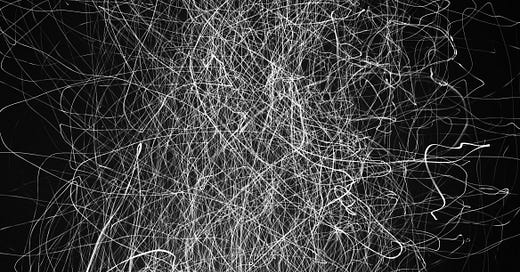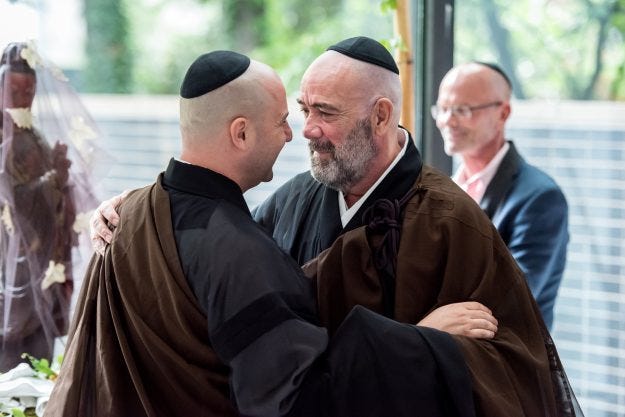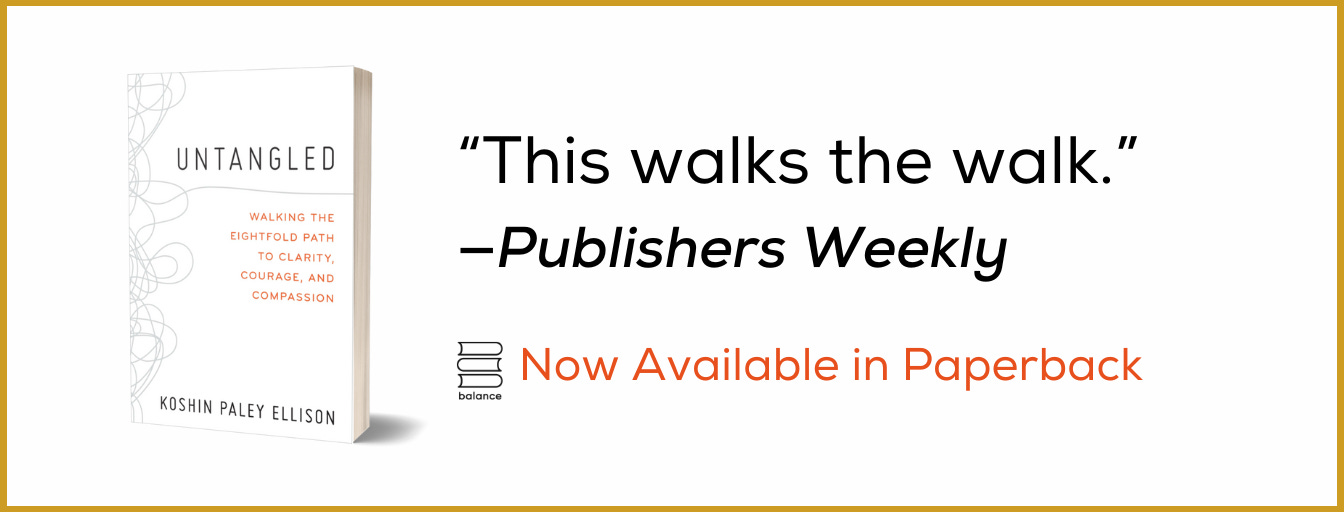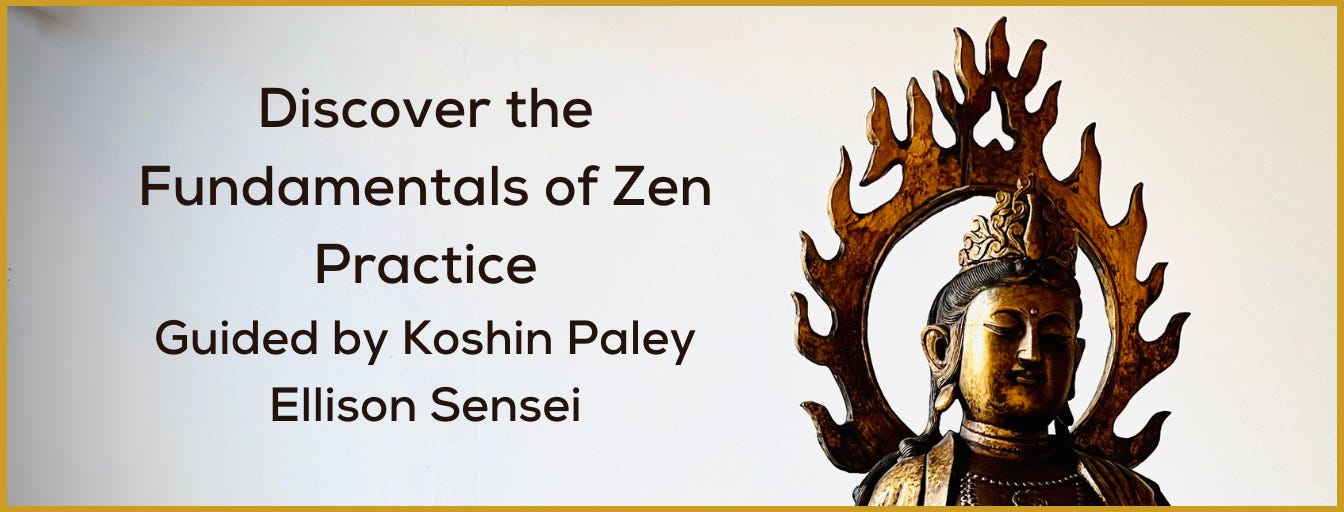Freedom in Untangling Ourselves from Pain
And how we can feel at home again and again in our bodies.
One day, I saw images of refugees at the border being whipped and brutalized by border patrol. It was so horrible, so dehumanizing, so terrifying. When the images started to do something to my body, I knew that something had been activated. Something was surfacing, but I didn’t know what.
Then, later that day, during a practice guided by one of my contemplative care students, we were invited to come into our bodies and remember a time when we felt unsafe. Suddenly, while sitting in a loft in Chelsea in the middle of New York City, this smell of the forest came into my nose. Then, in my mind, I heard screams and the sounds of machines in the night. I realized they were the sounds of the four wheelers that had chased me when I was ten years old.
Visceral memories came back, memories I hadn’t recalled before, memories of just trying to get off the path and survive, and these people chasing me with guns and yelling, “Die Jew! Hunt the Jew!” I’d been exploring the woods on the edge of my family’s property, and the neighborhood teenagers had found me there. It became a nighttime activity for them, but a nightmare for me.
My heart started to beat in my chest as I sat there on a cushion. My mind turned to my uncle Victor, who escaped the Mauthausen concentration camp in 1942. I recalled the stories he told me of hiding while the Nazis chased him.
All of this was in my body, and suddenly my body was in pain. I remembered running and jumping off the path through blackberry brambles, which clawed at my skin. I remembered trying to be completely still so those people in their four wheelers with their guns couldn’t find me. Now, forty years later, reliving this memory, I began to appreciate this attention to the body and what it can reveal.
As we came out of the meditation that day, I felt intense nausea. People began to go around the circle, sharing what came up for them. Then it was my turn to share what had come up for me. I could still feel this pain. I worked to regulate it, and keep myself present in the room. I felt my sit bones, and I found myself rocking back and forth, and thinking, I’m here, I’m here, and feeling my feet on the floor.
This was about untangling time. I was not in danger at that moment; I was okay.
With attention, somehow my mind and body came together forty years ago and sealed that memory. It felt like a miracle. Even sharing this now is painful, yet loving attention and awareness is like a balm for what we carry in our bodies.
Finding refuge in your body is a place of practice.
One of my students wrote to me that they were having a lot of visceral response to this recent example of cruelty in the news, and asked, “What value does the Dharma have in the face of that?”
I felt such tenderness toward this person.
A great value of the teaching is that we can feel these visceral responses and find a refuge in ourselves through attention and untangling it.
I thought back to the boys who hunted me in the woods. I considered what it took for them to come to that. What had happened to these people that they’d thought this was a fun activity?
They seemed joyful. I can still remember them laughing wildly—in a Lord of the Flies kind of way.
As we learn to practice being in refuge in our own bodies, we can widen out to include the bodies of our communities and the body of the earth itself.
This connectedness is perhaps only doable if we are non-separating from our own bodies as a starting place. When we are in denial of the pain in our own bodies, we are so much less likely to be able to make room for the pain of other people and beings in the world.
The specificity of our experience in our bodies—to feel our bodies, our breath, and our heartbeat, and to slow down and experience what we’re actually experiencing—is so important.
Some mornings I sit on the roof, watching the sun slowly rise, and the waning moon is sometimes still visible and setting—the delight of that.
Let’s practice together.
When we can feel at rest, we can feel expansiveness, contraction, pleasure, and pain, and learn how to become an ocean. Like Leonard Cohen says:
“If you don’t become the ocean, you’ll be seasick every day.”
We can feel the ocean in our bodies and not be caught in the swell and the heave. When we pay attention we can find the expanse of it, the broad ocean, and find the great healing tenderness that is always available to us.
Let us practice this together. I encourage you to sit in a comfortable position and tune in to the sensations of the body. See if you can feel the way the movement of the breath moves through the body like an ocean of sensation, first expanding the body, and then contracting it. Relax into this tidal movement of breath energy. Enjoy the flow of sensation, the electric tingling, the swell of movement. Spend some time sitting in the flow of breath in the body like you were by the oceanside, watching the waves. Experiencing the oneness of the body’s rhythms with the rest of nature is a place of practice.
Let’s have a dialogue.
I’m curious.
How have you approached untangling yourself from past struggles and pain? What supports you feeling free and at home in your body?
How do you not make an enemy?
I encourage you to share your experience in the comments below. You never know what small detail might change someone’s life.
May you give yourself grace and patience, and allow yourself the space and time to untangle yourself from the pain of your past.
Koshin.












I was raised in a tragic home environment. My mother was mentally ill (bipolar; pathological narcissism). My father was an alcoholic. (The two conditions were linked.)
I remember my mother threatening suicide back when I was just 8. Then, during my parents' almost physical fights, she would walk back to my bedroom and ask me to come out -- I guess to serve as a witness? I developed adult-child syndrome because I was asked, from the age of 12, to serve as a kind of witness/marriage counselor to my parents. Every day was lived in tension, wondering if my mother was going to have one of her fits that day or not.
So, the terror I most remember was simply the terror of living there. Non-stop stress and fear. Every day.
Years of psychotherapy helped. But it is no accident that all four of my parents' children became alcoholics. I coped that way for many years though am not currently drinking. Sobriety has helped me achieve more equilibrium in my life.
Through time and patience with myself. I recognized that my mother did the best she could with the tools she had…sometimes someone uses a sledgehammer to tighten a screw because they don’t have a screwdriver and all they know how to use is a sledgehammer.
(Analogy not real world abuse)
None of us know the trauma or stress or moment to moment struggles someone else has has or is facing. Holding all in space and grace has helped me navigate situations and relationships with wise speech (sometimes wise silence) wise action wise view and wise thought. We’ve all been hurt and all hurt others, but in truly being led by the truths of the dharma and seeing all beings as just like me in that way, I walk easier lighter and seek to know no enemies.